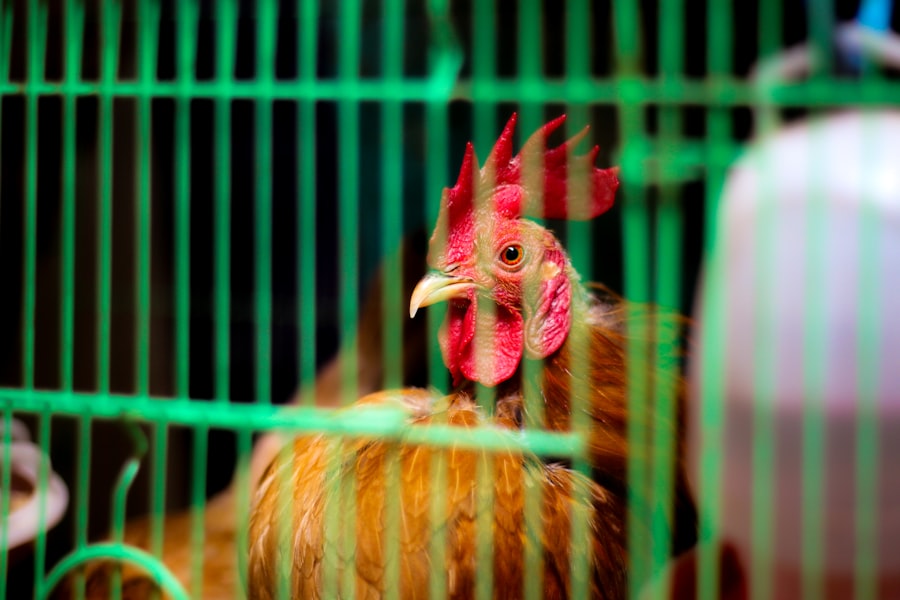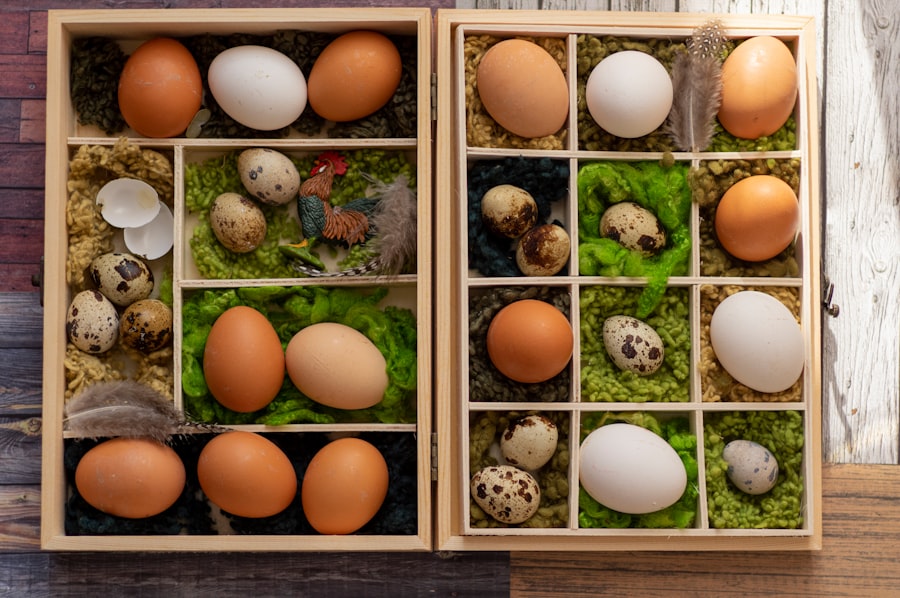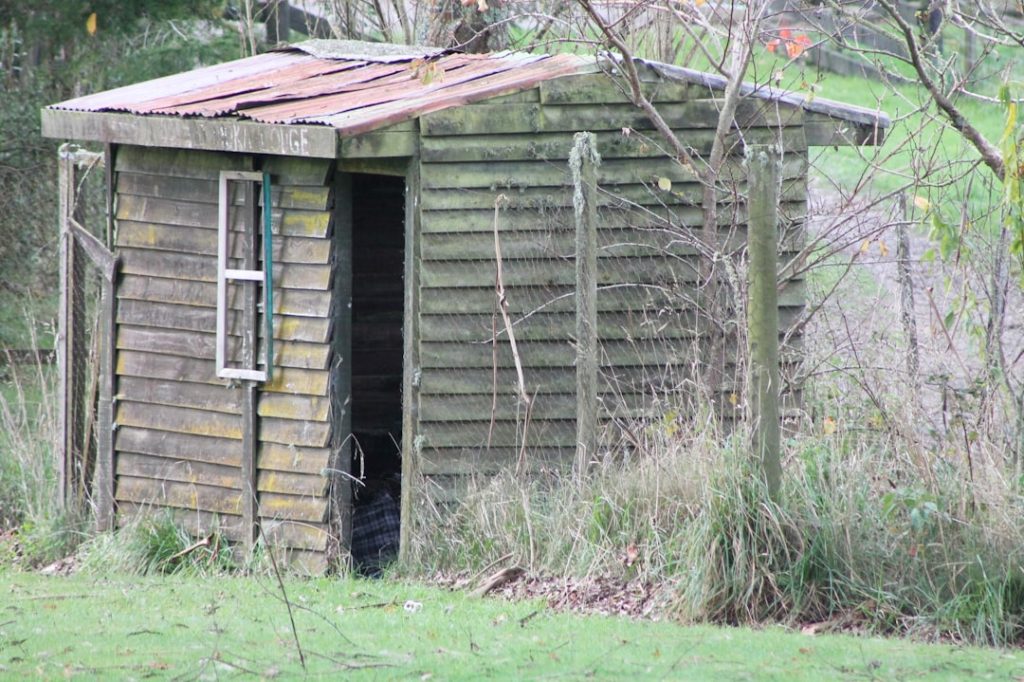Chickens are highly social creatures that thrive in flocks. They establish a complex social hierarchy known as the pecking order, which determines dominance within the group. This social structure is essential for maintaining harmony in the flock.
Chickens communicate through various vocalizations and body language, expressing their emotions and needs. Observing their behavior allows caretakers to identify signs of distress, illness, or aggression among the birds. Understanding chickens’ natural instincts, such as scratching for food and dust bathing, is crucial for providing an environment that meets their physical and psychological requirements.
These behaviors are important for their overall well-being and should be accommodated in their living space. Chickens have specific roosting and nesting behaviors that must be considered when designing a coop. They instinctively prefer to roost off the ground at night for protection from predators, making suitable roosting bars essential.
Providing comfortable and secure nesting boxes allows hens to lay eggs undisturbed, aligning with their natural nesting behavior. By comprehending and accommodating these behavioral traits, chicken keepers can create a coop environment that fulfills the birds’ social, physical, and psychological needs. This approach leads to healthier and more content chickens, ultimately benefiting both the birds and their caretakers.
Table of Contents
- 1 Creating a secure and comfortable coop
- 2 Providing adequate food and water
- 3 Regularly checking and maintaining the fencing
- 4 Training and socializing your chickens
- 5 Keeping predators at bay
- 6 Monitoring and addressing any signs of stress or illness
- 7 FAQs
- 7.1 What are some common reasons why chickens run away?
- 7.2 How can I prevent my chickens from running away?
- 7.3 What are some effective ways to keep chickens contained in their coop or designated area?
- 7.4 Are there any specific breeds of chickens that are less likely to run away?
- 7.5 What should I do if my chickens do run away?
Key Takeaways
- Chickens have natural behaviors such as scratching, dust bathing, and roosting that should be accommodated in their living environment.
- A secure coop with proper ventilation, nesting boxes, and perches is essential for the well-being of chickens.
- Providing a balanced diet and access to clean water is crucial for the health and productivity of chickens.
- Regularly inspecting and repairing fencing is important to keep predators out and chickens safe.
- Training and socializing chickens can help reduce stress and aggression within the flock.
Creating a secure and comfortable coop
Space and Ventilation
Providing adequate space per bird is crucial to prevent overcrowding and reduce stress within the flock. Additionally, proper ventilation is essential to maintain good air quality and prevent respiratory issues.
Predator-Proofing
The coop should also be predator-proof, with sturdy walls and a secure roof to keep out predators such as raccoons, foxes, and birds of prey. Installing hardware cloth around the coop and burying it underground can prevent predators from digging their way in. Furthermore, providing a secure door with latches and locks can help keep your chickens safe at night.
Comfort and Safety Inside the Coop
Inside the coop, providing roosting bars and nesting boxes will give your chickens a comfortable space to rest and lay eggs. Adding bedding such as straw or wood shavings can create a cozy environment for your birds. By creating a secure and comfortable coop, you can ensure the safety and well-being of your chickens.
Providing adequate food and water

Proper nutrition is essential for the health and productivity of your chickens. A balanced diet that includes a combination of commercial feed, grains, fruits, vegetables, and access to insects and grass is crucial for meeting their nutritional needs. Providing a constant supply of fresh water is also essential for keeping your chickens hydrated and healthy.
It’s important to use feeders and waterers that are designed to prevent contamination and spillage, keeping the food and water clean and easily accessible for the birds. Feeding your chickens at regular times each day can help establish a routine and prevent overeating or food waste. Additionally, monitoring their food intake can help you identify any changes in appetite or behavior that may indicate health issues.
Providing access to grit and oyster shells is also important for aiding in digestion and providing essential calcium for egg production. By ensuring that your chickens have access to a balanced diet and clean water at all times, you can promote their overall health and well-being.
Regularly checking and maintaining the fencing
Fencing is an important aspect of keeping your chickens safe from predators and preventing them from wandering into unsafe areas. Regularly checking the fencing around your coop and outdoor run is crucial for identifying any weak spots or damage that could compromise the security of your flock. Ensuring that the fencing is sturdy and free from holes or gaps can prevent predators from gaining access to your chickens.
Additionally, maintaining the fencing around the outdoor run can prevent your chickens from escaping into areas where they may be at risk of harm. Regular maintenance of the fencing may include repairing any damage, reinforcing weak spots, and clearing vegetation that could compromise its integrity. Installing predator-proof hardware cloth around the bottom of the fencing can prevent digging predators from gaining access to your flock.
Furthermore, regularly checking the fencing for signs of wear and tear can help prevent potential escapes or predator attacks. By regularly checking and maintaining the fencing around your coop and outdoor run, you can ensure the safety and security of your chickens.
Training and socializing your chickens can help create a harmonious environment within the flock and make it easier to handle them for health checks or other necessary tasks. Chickens can be trained to come when called, which can be useful for rounding them up at night or during emergencies. Additionally, socializing your chickens from a young age can help them become more comfortable around humans, reducing stress when handling them for tasks such as health checks or administering medication.
Training and socializing your chickens can be achieved through positive reinforcement techniques such as offering treats or praise when they exhibit desired behaviors. Spending time with your chickens, talking to them, and gently handling them can help build trust and reduce fearfulness. Additionally, introducing new birds to the flock gradually can help prevent aggression and establish a harmonious social dynamic.
By training and socializing your chickens, you can create a more cooperative and manageable flock.
Keeping predators at bay

Deterrents and Barriers
Predators pose a significant threat to the safety of your chickens, so it’s important to take measures to keep them at bay. Installing motion-activated lights or sound devices around the coop can deter nocturnal predators such as raccoons or foxes. Additionally, using predator-resistant feeders and waterers can prevent attracting unwanted attention from predators looking for an easy meal.
Clearing the Area
Keeping the area around the coop clear of debris or overgrown vegetation can reduce hiding spots for predators. This simple step can go a long way in keeping your flock safe.
Guard Animals and Hardware Cloth
Using guard animals such as dogs or geese can also help deter predators from approaching the coop. Training these animals to patrol the area around the coop can provide an added layer of protection for your flock. Furthermore, installing predator-proof hardware cloth around the coop and outdoor run can prevent predators from gaining access to your chickens.
Monitoring and addressing any signs of stress or illness
Monitoring the behavior and health of your chickens is crucial for identifying any signs of stress or illness early on. Changes in behavior such as lethargy, decreased appetite, or unusual vocalizations can indicate that something is amiss with your birds. Additionally, observing their physical condition for signs of injury or illness such as abnormal feather loss or discharge from the eyes or nostrils can help identify potential health issues.
Addressing any signs of stress or illness promptly is essential for preventing further complications and promoting the well-being of your flock. Isolating sick or injured birds from the rest of the flock can prevent the spread of illness and provide them with a quiet space to recover. Seeking veterinary care when necessary is important for diagnosing and treating any health issues that may arise.
By monitoring and addressing any signs of stress or illness in your chickens, you can help maintain a healthy and thriving flock. In conclusion, understanding the behavior of chickens is essential for creating a harmonious environment within the flock. By providing a secure and comfortable coop, adequate food and water, regular maintenance of fencing, training and socializing your chickens, keeping predators at bay, and monitoring their health, you can ensure the safety and well-being of your flock.
Taking proactive measures to meet their physical, social, and psychological needs will lead to healthier and happier birds.
If you’re looking for tips on how to keep chickens from running away, you might also be interested in learning about what geese can eat. Check out this article on poultrywizard.com for more information on feeding geese and how it relates to keeping them from wandering off.
FAQs
What are some common reasons why chickens run away?
Chickens may run away due to fear, lack of proper shelter or food, or the presence of predators. They may also be seeking better foraging opportunities or a more suitable environment.
How can I prevent my chickens from running away?
To prevent chickens from running away, ensure they have a secure and spacious coop, provide them with adequate food and water, and regularly check for any signs of predators. Additionally, consider providing enrichment activities and ensuring they have enough space to roam.
What are some effective ways to keep chickens contained in their coop or designated area?
Some effective ways to keep chickens contained include using fencing, chicken wire, or electric netting to create a secure perimeter. Additionally, consider using chicken-friendly deterrents such as motion-activated sprinklers or noise devices to discourage them from wandering.
Are there any specific breeds of chickens that are less likely to run away?
Certain breeds of chickens, such as Orpingtons, Australorps, and Silkies, are known for being more docile and less likely to wander off. However, individual temperament and environmental factors also play a significant role in a chicken’s likelihood to run away.
What should I do if my chickens do run away?
If your chickens do run away, try to locate them by searching nearby areas and asking neighbors for assistance. Consider using treats or food to lure them back, and if necessary, set up humane traps to safely capture them. Additionally, consider implementing measures to prevent future escapes.
Meet Walter, the feathered-friend fanatic of Florida! Nestled in the sunshine state, Walter struts through life with his feathered companions, clucking his way to happiness. With a coop that’s fancier than a five-star hotel, he’s the Don Juan of the chicken world. When he’s not teaching his hens to do the cha-cha, you’ll find him in a heated debate with his prized rooster, Sir Clucks-a-Lot. Walter’s poultry passion is no yolk; he’s the sunny-side-up guy you never knew you needed in your flock of friends!







